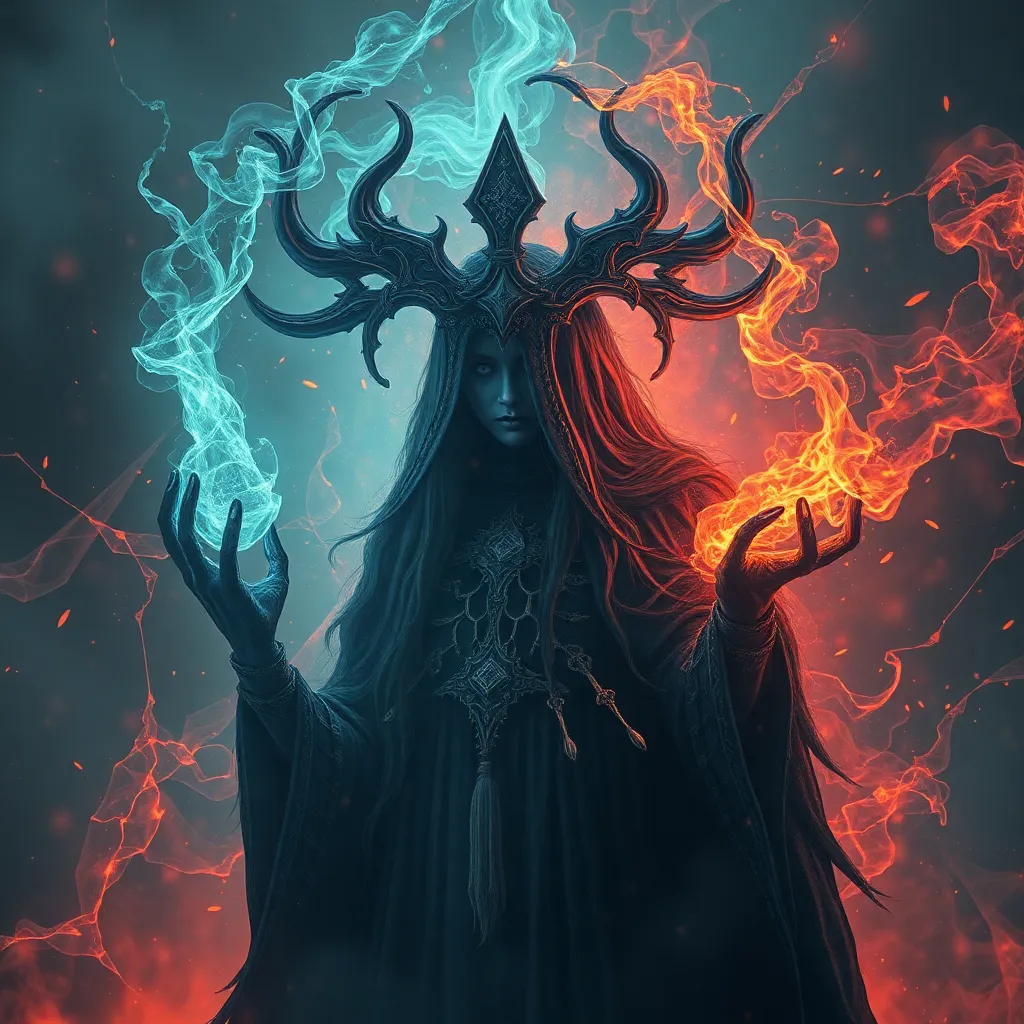The Tengu’s Flute: Music, Magic, and the Mysticism of the Mountain Spirit
I. Introduction
The Tengu, a fascinating figure in Japanese folklore, embodies the spirit of the mountains, representing both the mystical and the mischievous. Known for their bird-like features and supernatural abilities, Tengu have captivated the imagination of the Japanese for centuries. Central to their lore is the flute, an instrument that not only symbolizes their connection to nature but also serves as a conduit for their magical powers.
This article aims to explore the multifaceted nature of Tengu, examining their role as guardian spirits of the mountains, the significance of music and the flute in their mythology, and the enduring impact of Tengu in contemporary culture.
II. The Tengu: Guardian Spirits of the Mountains
Tengu are often depicted as half-human, half-bird creatures, with red faces, long noses, and the ability to fly. They are guardians of the forests and mountains, revered and feared in equal measure.
- Description and characteristics: Tengu are known for their martial skills, wisdom, and supernatural abilities. Their appearance varies, with some resembling humans and others taking on more avian features.
- Historical and cultural significance: In Japanese society, Tengu have been seen as protectors of the mountains, often associated with the Shinto religion. They are believed to guide lost travelers and punish those who disrespect nature.
- The dual nature of Tengu: While Tengu are often portrayed as protectors, they also possess a trickster element, leading people astray or playing pranks on unsuspecting humans.
III. The Flute as a Symbol of Tengu’s Power
The flute holds a significant place in Tengu lore, symbolizing their magical abilities and deep connection to nature. It is said that the sound of the flute can soothe the wildest of beasts and inspire both fear and reverence in those who hear it.
- The role of the flute in Tengu lore: Tengu are often depicted playing flutes, enchanting listeners with their melodies. The music is believed to have transformative powers, connecting the physical and spiritual realms.
- Symbolism of music: In many cultures, music is seen as a bridge between the earthly and the divine. In Tengu mythology, it represents nature’s harmony and the spiritual energy of the mountains.
- The connection between the flute and nature: The flute’s sound is reminiscent of the natural world—wind rustling through trees, water flowing in streams—further emphasizing Tengu’s role as nature’s guardians.
IV. The Magic of Music: Enchantment and Transformation
Tengu’s music is often described as enchanting, capable of luring people into the mountains or transforming their states of being. The psychological effects of music in folklore extend beyond mere enjoyment; they can evoke deep emotional responses and even alter perceptions of reality.
- How Tengu use music to enchant listeners: Tengu are known to play their flutes to attract lost travelers, sometimes leading them to safety, while at other times, leading them astray.
- Stories of transformation: There are numerous tales of individuals who, upon hearing the Tengu’s flute, experience profound transformations, whether spiritual awakenings or physical changes.
- The psychological effects: Music has long been recognized for its ability to alter moods and states of consciousness. In Tengu lore, the flute serves as a powerful tool for invoking emotions and connecting listeners to the spiritual world.
V. Tengu’s Flute in Art and Literature
Throughout history, Tengu and their flutes have been prominent subjects in traditional Japanese art and literature. Their portrayal reflects the complexities of their character and their relationship with humanity.
- Representation in traditional art: Tengu are often depicted in ukiyo-e prints, showcasing their flutes and their interactions with nature and humans.
- Notable literary works: Tengu have been featured in various literary texts, from ancient tales to modern stories, often highlighting their dual nature as protectors and tricksters.
- Modern interpretations: In contemporary media, Tengu continue to inspire artists and writers, leading to new interpretations of their mythos and the symbolism of their flutes.
VI. The Mysticism of the Mountain Spirit
Mountains hold a sacred place in Japanese culture, often viewed as the dwelling places of gods and spirits. Tengu, as guardians of these mountainous realms, embody the spiritual significance of nature.
- The spiritual significance of mountains: In Shinto beliefs, mountains are seen as sources of spiritual power, and Tengu are considered mediators between humans and the divine.
- The relationship between Tengu and nature: Tengu represent the wildness of nature, embodying both its beauty and its dangers. Their connection to the mountains reflects a deep respect for the natural world.
- Rituals and practices: Various rituals exist to honor Tengu, including offerings of food and music, acknowledging their role as protectors and mediators.
VII. Contemporary Interpretations of Tengu and Their Flutes
In recent years, there has been a resurgence of interest in Tengu mythology, appearing in various forms of modern media, including anime, video games, and music.
- The resurgence of interest: Tengu have found their way into contemporary storytelling, often depicted as wise mentors or whimsical tricksters in popular culture.
- Tengu-inspired music: Musicians have drawn inspiration from Tengu lore, creating compositions that evoke the mystical qualities of their flutes and the enchanting power of music.
- Adaptation in popular culture: Tengu themes are being explored in various formats, from film to digital art, demonstrating their lasting impact on modern creativity.
VIII. Conclusion
The Tengu stands as a complex figure in Japanese folklore, embodying the themes of music, magic, and mysticism. Their flutes not only symbolize their power but also serve as a reminder of the deep connection between humanity and nature.
As we reflect on the enduring legacy of Tengu in contemporary society, we find that their stories continue to resonate, bridging the ancient and the modern. The interplay of folklore, music, and spirituality encapsulated in Tengu’s flute remains a source of inspiration, inviting us to explore the mysteries of the natural world and our place within it.




